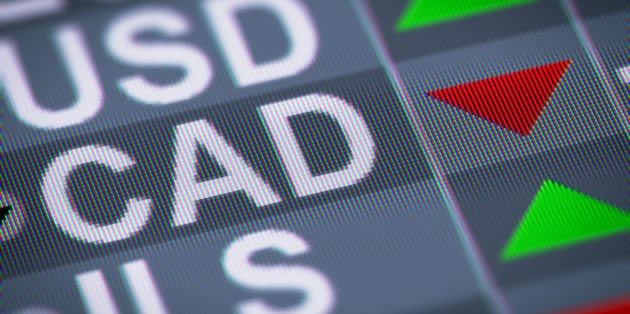The British Pound to Euro (GBP/EUR), British Pound to US Dollar (GBP/USD) and British Pound to Canadian Dollar (GBP/CAD) exchange rates were all trending in a narrow range on Friday ahead of UK Construction Output figures.
Earlier… The British Pound to Euro (GBP/EUR) British Pound to US Dollar (GBP/USD) and British Pound to Canadian Dollar (GBP/CAD) exchange rates all took a tumble in the second half of Thursday’s session after Bank of England (BoE) Governor Mark Carney spoke in Sheffield.
The central banker suggested that there could be a delay in UK interest rate hikes if global inflation continues trend lower.
Carney stated: ‘The bottom line is that there is a risk that the combination of persistently low global inflation and the strength of Sterling could weigh on prices here for some time. But despite these headwinds, a solid UK expansion, underpinned by strong domestic demand growth, leaves us on track to return inflation to target within the next two years.’
Earlier… The British Pound to Euro (GBP/EUR) and British Pound to Canadian Dollar (GBP/CAD) exchange rates were trending in a narrow range on Thursday after UK Trade Balance data helped reverse earlier losses, while the British Pound to US Dollar (GBP/USD) exchange rate traded higher after US Federal Reserve stress test results.
The Euro recorded heavy losses earlier in the week as negotiations between Greece and its creditors continued and the European Central Bank (ECB) began a period of quantitative easing (QE).
Some economists have speculated that the ECB was attempting to push the Euro to parity with the US Dollar—a weaker currency would give the Eurozone a competitive advantage.
However, ECB official Ewald Nowotny commented: ‘The ECB, as a central bank, does not have the exchange rate as a policy. It is a side effect of other things.’
‘Exchange rates are not a major dominant factor for the global economy. I think it would be wrong right now to assume that what’s going on is a currency war.’
EUR/USD Hits 12-Year Low, GBP/EUR Jumps to Seven-Year High
As a result of the ECB’s QE kick-off, the Euro to US Dollar (EUR/USD) exchange rate fell to a 12-year low at $1.0560—the Euro has fallen by 12% against the ‘Greenback’ this year. Additionally, the British Pound to Euro (GBP/EUR) exchange rate has climbed over the €1.40 mark (currently residing at €1.4150) to hit a seven-year high.
Deutsche Bank commented on the prospect of EUR/USD parity, saying: ‘We now see the Euro-Dollar moving down to $1.00 by year-end, $0.90 by 2016 and down to a trough to $0.85 by 2017.’
Furthermore, as the ECB begins a period of QE, other central banks such as the US Federal Reserve and Bank of England (BoE) are readying themselves for rate hikes.
Favourable labour market data caused a surge in the US Dollar last week as investors priced in a sooner-than-forecast increase in borrowing costs.
However, the US Dollar was offered little support in Thursday’s European session when the Federal Reserve published its latest stress test results. After the onset of the global financial crisis in 2008, banks are put through a series of hypothetical scenarios to see how they’d fare in the wake of a fresh economic shock.
However, the Fed reported that four of Wall Street’s largest banks struggled to pass the test—an event that dampened optimism and investor sentiment in the US Dollar.
The Fed stated: ‘While [bank holding companies] have better practices in place today than they did before the crisis, many continue to have challenges in fully meeting supervisory expectations for capital planning.’
Furthermore, concerns over US Dollar strength have heightened and economists fear that it could begin to damage the economy.
Meanwhile, the Canadian Dollar exchange rate has been hit in the fallout of a strengthening US Dollar alongside tumbling oil prices.
Scotiabank economist Camilla Sutton commented: ‘The ‘Loonie’ is down for a whole host of trends and the biggest trend is the strong US Dollar against all major currencies.’
‘The real takeaways are the [US Federal Reserve] is likely to tighten rates and other central banks aren’t. We have oil prices that are moving to new lows and we have sentiment favouring a higher US Dollar and all of it has come together and weighs heavily on the Canadian Dollar.’
However, perhaps the Canadian Dollar will be given the opportunity to reclaim some losses on Friday with the release of Canadian Net Change in Employment and Unemployment Rate stats.
Economists are forecasting a rise in the Unemployment Rate from 6.6% to 6.7%, an event that could hinder Canadian Dollar to Euro (CAD/EUR), US Dollar (CAD/USD) and British Pound (CAD/GBP) gains. However, if economists are incorrect and the data prints favourably the ‘Loonie’ could potentially rally.
British Pound Exchange Rate Forecast: GBP/EUR, GBP/USD, GBP/CAD
The British Pound is likely to fluctuate on Thursday with Bank of England Governor Mark Carney scheduled to speak in Sheffield.
In addition, the UK trade deficit narrowed dramatically in January as the UK services sector gained momentum and oil prices softened. The ecostat recorded the smallest figure since January 2013 at 616 million British Pounds, down from 2.14 billion.
The British Pound to US Dollar (GBP/USD) exchange rate is trading at 1.4987. The British Pound to Canadian Dollar (GBP/CAD) exchange rate is residing at 1.9023. The British Pound to Euro (GBP/EUR) exchange rate is trending in the region of 1.4150.



